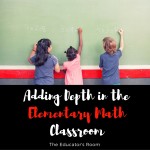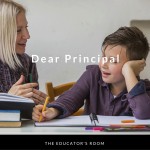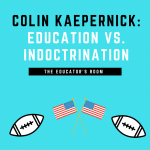There’s no shortage of teaching books out there, but here are 10 of my absolute must-reads. While they aren’t all strictly teaching books, that’s by design. The more I’ve learned about history, policy, and the human condition, the better teacher I’ve become.
- Culturally Responsive Teaching and the Brain by Zaretta Hammond
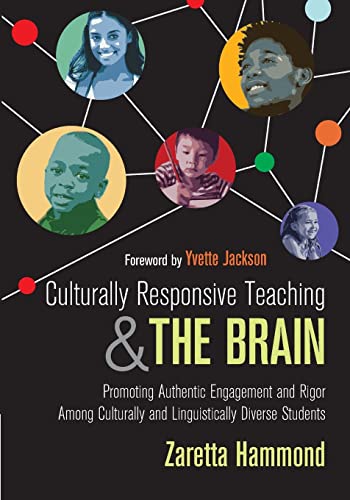
Why it’s a must-read: An expert blend of science and social justice, this book gives both the “why” and the “how” of culturally responsive teaching that’s essential for all students’ success.
“The true power of culturally responsive teaching comes from being comfortable in your own skin because you are not a neutral party in the process. You can never take yourself out of the equation. Instead, you must commit to the journey. This means we each must do the “inside-out” work required: developing the right mindset, engaging in self-reflection, checking our implicit biases, practicing social-emotional awareness, and holding an inquiry stance regarding the impact of our interactions on students.”
- Caste by Isabel Wilkerson
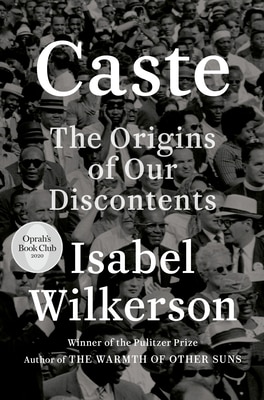
Why it’s a must-read: It’s no exaggeration to say that this book changed how I view every aspect of our country, my life, and my teaching practice. Prepare for some serious unlearning, relearning, and mind-blowing moments.
“The owner of an old house knows that whatever you are ignoring will never go away. Whatever is lurking will fester whether you choose to look or not. Ignorance is no protection from the consequences of inaction. Whatever you are wishing away will gnaw at you until you gather the courage to face what you would rather not see.”
- Better Than Carrots or Sticks by Dominique Smith, Douglas Fisher, and Nancy Frey
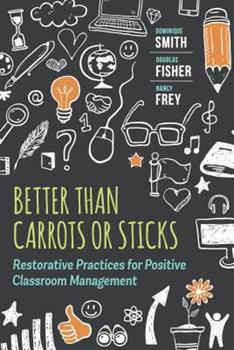
Why it’s a must-read: I read this in grad school and credit it, along with my grad program, with shaping my progressive, restorative views on classroom management and discipline.
“In order for students to develop self-regulation skills, they need experience making choices. Unfortunately, some schools are in the business of issuing mandates that reduce choice in an effort to curtail misbehavior.”
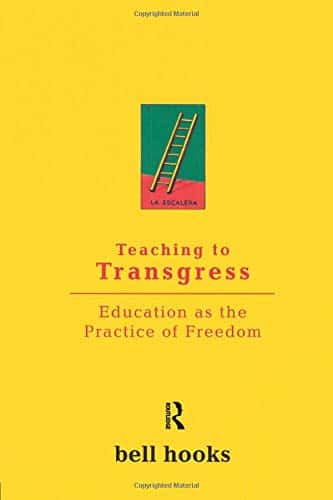
Why it’s a must read: The recently late bell hooks is a founding member of the social justice education canon. I read this is 2020 when my well of hope was at an all time low, and her words reminded me of why I teach.
“To educate as the practice of freedom is a way of teaching that anyone can learn. That learning process comes easiest to those of us who teach who also believe that there is an aspect of our vocation that is sacred; who believe that our work is not merely to share information but to share in the intellectual and spiritual growth of our students.”
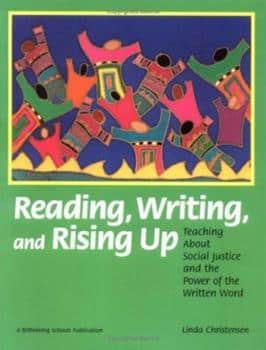
Why it’s a must-read: This is my favorite text for English Language Arts teachers. She writes a perfect blend of social justice educational theory and practical classroom ideas that’s essential for every ELA teacher who refuses to settle teaching the canon.
“I use the term “rising up” because reading and writing should be emancipatory acts…We must teach students how to “read” not only novels and science textbooks but cartoons, politicians, schools, workplaces, welfare offices, and Jenny Craig ads. We need to get students to “read” where and how public money is spent. We need to get students to “read” the inequitable distributions of funds for schools. This is “rising up” reading—reading that challenges, that organizes for a better world.”
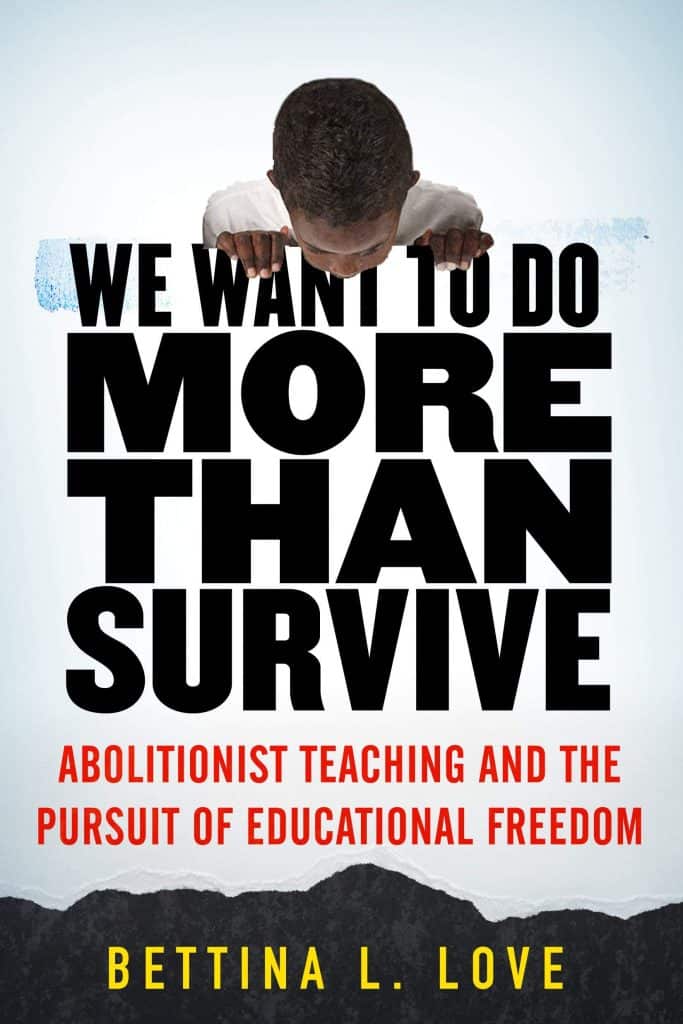
Why it’s a must-read: Bettina Love outlines a bold and inspirational vision for what education could look like, free of the restrictions of our current systems. She writes of true transformation, not just reform, and is required reading for aspiring antiracist educators.
“Abolitionist teaching is choosing to engage in the struggle for educational justice knowing that you have the ability and human right to refuse oppression and refuse to oppress others, mainly your students.”
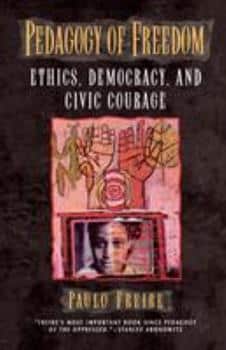
Why it’s a must-read: Keeping company with bell hooks, Paulo Freire should be on every teaching program’s syllabus. His views on the transformative power of education are inspiring.
“The teacher who does not respect the student’s curiosity in its diverse aesthetic, linguistic, and syntactical expressions; who uses irony to put down legitimate questioning (recognizing of course that freedom is not absolute, that it requires of its nature certain limits); who is not respectfully present in the educational experience of the student, transgresses fundamental ethical principles of the human condition.”
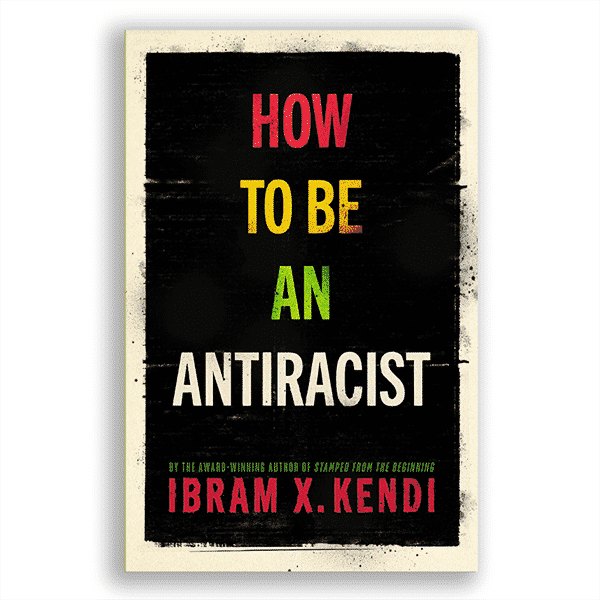
Why it’s a must-read: Every teacher has a moral and professional responsibility to understand the structures of racism and white supremacy that have built our systems.
“There is no such thing as a nonracist or race-neutral policy. Every policy in every institution in every community in every nation is producing or sustaining either racial inequity or equity between racial groups.”
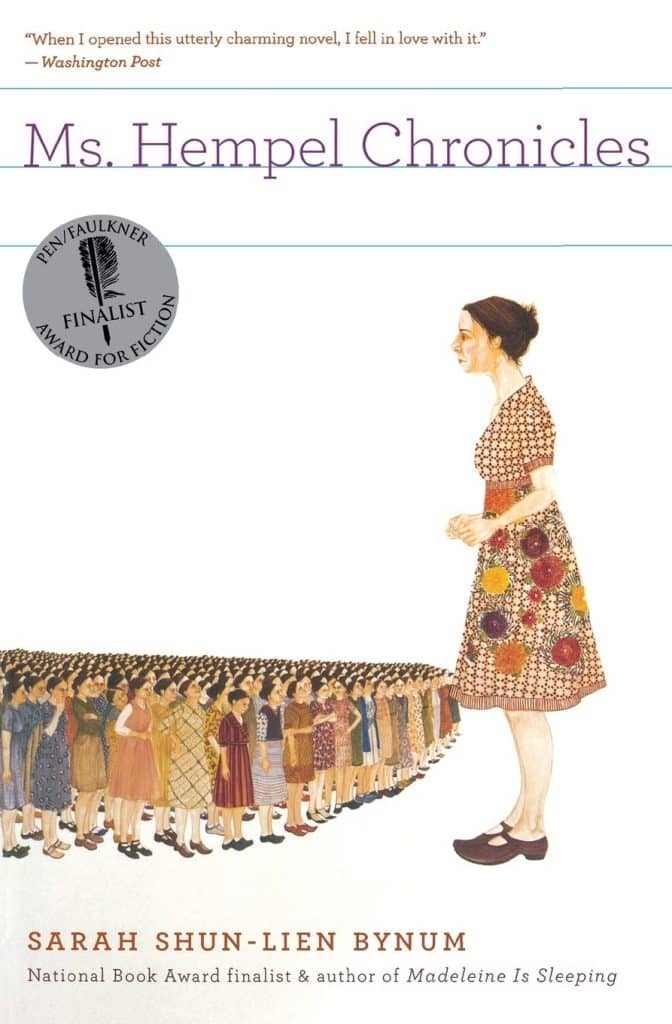
Why it’s a must-read: This is a personal addition and a book I wish more people read. I credit this series of linked short stories based on the author’s time as a middle school teacher with much of my decision to teach in the first place.
“This was the feeling that Ms. Hempel couldn’t shake: a conviction that she spent her days among people at the age when they are most purely themselves. How could she not be depleted when she came home, having been exposed for hours, without protection, to all those thrumming radiant selves? Here they were, just old enough to have discovered their souls, but not yet dulled by the ordinary act of survival, not yet practiced in dissembling.”

Why it’s a must-read: I had the pleasure of working with Dr. Stembridge in a book study with Washington educators through CSTP, and his enthusiasm and energy translate so well to the page.
“We as teachers lose control whenever our students are leveraging their own assists and capital in building their own unique conceptual connections in their developing understanding. They are analyzing and synthesizing and creating in ways that we could not have predicted— because it is impossible to fully anticipate how another human being will come to truly understand something.”


